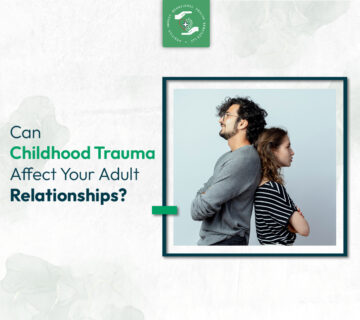Dealing with anxiety and depression can be incredibly challenging, but you don’t have to face it alone. Counseling services offer a supportive environment where you can work through these feelings. In this FAQ blog, we’ll explore how counseling can help you manage and overcome anxiety and depression.
What are Counseling Services?
Counseling services are professional guidance provided by trained counselors to help individuals overcome personal or psychological challenges. At their core, these services offer a supportive environment where individuals can explore their feelings, thoughts, and behaviors with the help of a professional. This creates a space for personal growth and emotional well-being Uncategorized – Page 7.
Counselors serve as neutral, compassionate guides on your journey towards healing. They employ various therapeutic techniques tailored to the individual’s needs. Whether you are dealing with anxiety, navigating grief, or seeking to improve relationships, counseling can be pivotal in personal development. The diversity in counseling services means that whether you need individual counseling, couples therapy, or family counseling, there’s an approach suited for everyone What Are Counseling Services and How Can They Help?.
Beyond the confines of the counseling room, these services play a crucial role in helping individuals understand and manage emotions, develop healthier relationships, and build confidence to tackle life’s challenges. The ultimate goal is to offer a space where clients can freely express themselves and begin the healing process.
How Do Counseling Services Identify Anxiety and Depression?
Counselors use various assessment tools and techniques to identify symptoms of anxiety and depression, tailoring their approach to fit individual needs. Typically, this involves detailed discussions about your symptoms, feelings, and experiences. The goal is to create a comprehensive understanding of your mental health landscape, which forms the basis for personalized care.
Recognizing the signs of anxiety and depression is fundamental in developing an effective treatment plan. Common symptoms of depression include persistent sadness, loss of interest in activities, and changes in sleep or appetite patterns. By accurately identifying these symptoms, counselors can guide individuals towards appropriate therapeutic interventions.
It’s crucial to have a personalized approach, as anxiety and depression manifest differently in each individual. A counselor might delve into an individual’s past experiences, current stressors, and coping mechanisms to paint a broader picture of the condition, ensuring the chosen treatment addresses each unique aspect of their struggles.
What Techniques Do Counselors Use to Treat Anxiety?
Common techniques include cognitive-behavioral therapy, mindfulness practices, and stress management strategies to help manage anxiety effectively. Cognitive-behavioral therapy (CBT) is particularly prevalent, helping individuals identify and challenge negative thought patterns and beliefs, replacing them with more positive ones.
Mindfulness practices encourage individuals to remain present in the moment, fostering an awareness of their thoughts and emotions without judgment. This approach helps in reducing rumination and increasing relaxation, vital tools for managing anxiety symptoms.
Additionally, stress management strategies, such as deep breathing exercises and guided imagery, are taught to help clients navigate anxious feelings in real-time. These techniques can empower individuals to feel more in control of their emotional experiences, gradually reducing the grip anxiety has on their lives.
How Can Counselors Help with Depression?
Counselors provide therapies such as interpersonal therapy and cognitive-behavioral techniques to help address and resolve depressive symptoms. These therapies focus on understanding the relationships between thoughts, feelings, and behaviors to develop healthier patterns of living Depression.
Interpersonal therapy seeks to improve communication skills and increase social support, which can significantly impact recovery. By addressing interpersonal disputes, role transitions, and grief, therapists help clients build stronger connections with others, fostering a sense of belonging and support.
Each counseling session is an opportunity to explore and process emotions in a supportive space. Over time, this nurtures resilience and encourages the development of practical coping mechanisms, both essential for long-term mental health.
What Are the Benefits of Counseling Services?
Counseling can provide guidance, emotional support, and effective coping mechanisms, leading to improved mental health and well-being. Many individuals experience a renewed sense of hope and clarity after engaging with therapeutic practices.
The benefits of counseling extend beyond immediate emotional relief. By offering valuable insights into behavior patterns and developing strategies for change, individuals can achieve a more balanced and fulfilling life. Counseling equips people with the tools needed to adapt and overcome life’s inevitable hurdles.
How to Choose the Right Counseling Service for You?
It’s essential to consider factors such as the counselor’s approach, experience, and your comfort level to find the right fit for your needs. The relationship between the counselor and client is pivotal in ensuring a successful therapeutic journey.
Scheduling an initial consultation can help you determine if the counselor’s style aligns with your expectations. This initial meeting is a valuable opportunity to raise questions about their approach, experiences, and view on mental health.
Ultimately, the goal is to find a therapist who understands your specific challenges, offering a tailored approach that aligns with your personal needs and goals. Recommendations from trusted sources and acknowledging your own comfort and intuition will guide this choice.
Taking the First Step Towards Healing
Counseling services offer a safe haven for individuals battling anxiety and depression. By understanding your unique struggles, providing effective strategies, and delivering personalized support, counseling can be a crucial step in your journey towards healing. Don’t hesitate to reach out and take your first step towards a happier, healthier life.






No comment